#short essay
Text
My study table gives me so much motivation that sometimes I forget to look up and read these notes

198 notes
·
View notes
Text
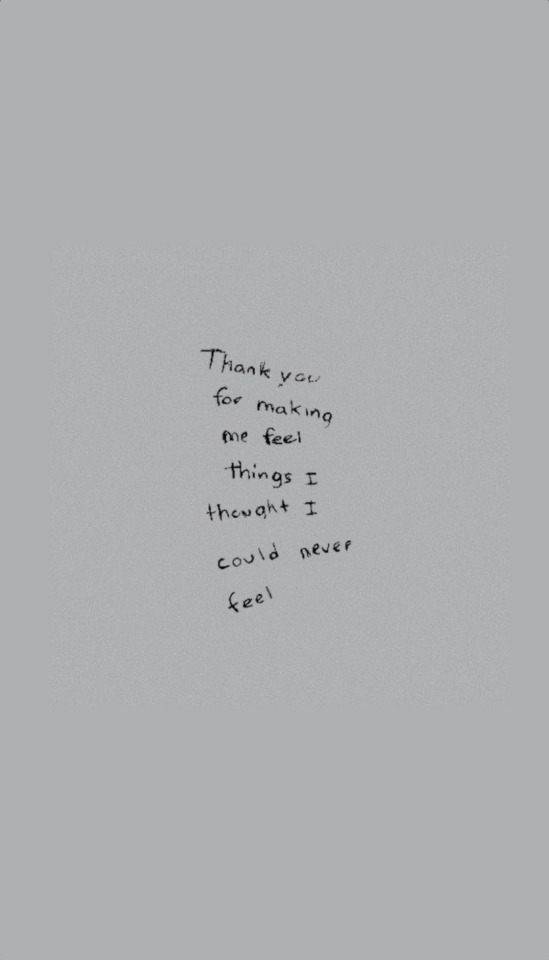
Short love affairs can leave you feeling less justified in your grief because they were never supposed to be serious. You may spend days in retrospect dissecting the shadow side of passion, the self-delusion, the neuroses, or the role of misplaced optimism in ill-fated partnerships. I don't know. I want to blame the human pressure to find serious connection within casual bonds, but it's not to blame either. It's me; begging and praying for almost a year to be able to feel something for someone again. Now that it's possible—I spend days trying to make peace with the fact that someone who'll make you feel human again probably won't be able to stay in your life. I should've known the risk of what I was asking for. Now I have to live with it and be grateful that I've got what I asked for. Also, to realize that wanting to love again sometimes means having to hurt.
260 notes
·
View notes
Text
i LOVE it when comedy/horror films build up tension just to destroy it dramatically, intentionally confusing the audience with many different tones; even though they aren't alike at all, i think nerdy prudes must die (NPMD) and many radio tv solutions (RTVS) streams/bits are masterclasses at this sort of form!!!
in NPMD, i mostly see richie's 'arc' as being the center point of the tension. he announces to the audience that he's dead, but this idea is quickly eclipsed as the show goes on. richie finds friends and his place once jagerman is 'gone', and the tone begins to feel eerily comfortable. when he says he loves being alive, all this anxious positivity bursts as the audience remembers his fate, and this creates a really unique atmosphere of both comedy and despair.
i could cite many RTVS bits here, but i'll just talk about breaking bad vr (BBVRAI) since it was so recent. everything RTVS does online, on and off stream, is part of their performance (duh). all of the producers/contributors of BBVRAI pushed a very obscured narrative about what the stream would be up to and on the day of the stream. in building this hype and attracting this attention, they equally built tension, and even when the stream started, they continued to build this heightened emotion until the stream title rolled. the title screen, for lack of a better term, "popped" the tension, eliciting mixed tones of comedy, disappointment/excitement, confusion, etc.
this is an interesting choice by the production teams of both NPMD and BBVRAI in that it achieves generally the same result; the audience's emotions are built to be disrupted. this disruption is intentional, and it is meant to confuse/shock/hurt/surprise/etc. it works SO WELL in horror and comedy because those emotions i listed are critical to the genres.
if you read this far, thanks :) my tumblr is kind of turning into my springboard for all the drafty analytical thoughts my little english major brain has :)
#literary analysis#literary criticism#lit crit#short essay#writing#nerdy prudes must die#npmd#starkid#starkid npmd#starkid nerdy prudes must die#radio tv solutions#rtvs#bbvrai#breaking bad vr but the ai is self aware#richie lipschitz#long post#wayneradiotv
68 notes
·
View notes
Text
I just made the saddest realisation ever. In 911 when Buck comes out and kisses Tommy, the first thing he says is that he's 'free' which I find to be a beautiful sentiment because Buck has finally come to terms with his bisexuality and is free to love who he wants. He can be with who he wants without society's negative perceptions on him because firefighters are supposed to masculine and aren't seen as being gay so this is amazing interpretation. The subtext fans of 911 have seen has finally been acknowledged by the writers and they are passionate about exploring the bi Buck storyline and I think the actor Oliver Stark plays those emotions really well because it is a sweet release of feelings he's always wanted to feel. He gets to be his true self. This is such a big interpretation for the queer community on TV because they get to explore Buck's sexuality with honesty and openess which I've seen other shows never committed to. They've just ignored it without fully addressing the text and leaving it open to fan interpretation which I find nuts because the potential is there to write a beautiful love story so for 911 to do this is a really big fucking deal. Building out this arc for Buck means we will get canon Buddie in the near future and that will most definitely break the Internet.
But this is where the Supernatural connection comes in. After Dean and Sam defeat Chuck, the first thing Dean says when they get back to the bunker is that they're 'finally free' as Chuck is no longer meddling with their lives as part of his own story and Dean is free to do what he chooses. And then the next episode, Dean dies before he has the chance to relish in that freedom. He could of been a free bisexual man on screen. They had his literal best friend confess his love for him and then die after two episodes ago. The network weren't willing to explicitly show Dean's sexuality because it's like I said, they didn't address the text and left it up to dull interpretation as always. They never got their canon happy ending because the CW were cowards. Dean didn't get a chance to be free as his true self because the network was too afraid to commit to anything which is tragic. Buck rose out of Dean's ashes and got to do something he never did - he got to be explicitly bi on live television and I think it's a lesson that all networks should take up if fans are shipping two male characters together. Actually make them proud and actually explore it in depth. Be bold, take risks and actually make it canon.
Buck got to be free while Dean didn't. It feels insane to even write that in a sentence but it just shows you that 911 did what Supernatural never got the chance to achieve and that's cathartic bisexual interpretation. Buck got to carry on the flag and go to do what Dean Winchester never could and I think it's such a beautiful thing. It gives me hope that maybe things will be different one day.
Sorry for rambling a lot but I hope the SPN revival takes notes.
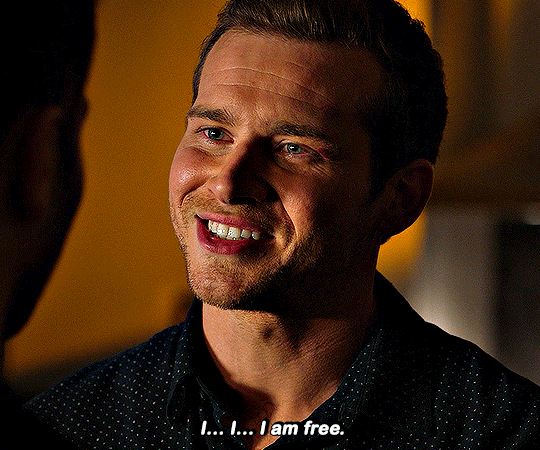
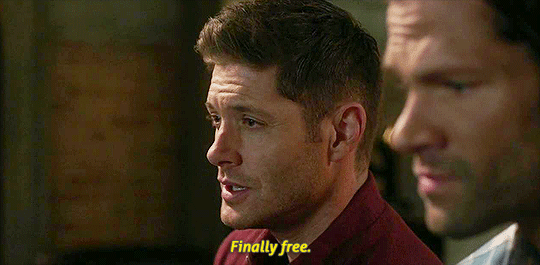
#supernatural#dean winchester#bi dean#destiel#jensen ackles#castiel#evan buckley#bi buck#911 abc#buddie#oliver stark#short essay#spn and 911 parallels#this is nightmares that it'll keep me up at night#never watched 911 but this is the perspective of a spn fan#fuck the cw#confetti for abc#finally free#i mean just think about it for a moment 🥲#dean could of had it all
42 notes
·
View notes
Text
I don’t talk enough about Adam and Gansey’s friendship so I’m going to do that now.
Once we knew that the tree they found in book one was designed to show someone their worst nightmare, I lost it. Adam’s worst nightmare was that he would be the one to kill Gansey. He didn’t even know he was destined to die yet, and Gansey and Adam spent half of the first book arguing but adam’s biggest fear was hurting Gansey. Adam had a million things to be afraid of. He could have been scared of going home, of never getting out, never going to harvard. He was so scared of proving everyone who ever assumed he was nothing right, but he was more scared of hurting Gansey.
He doesn’t share the same unquestionable loyalty and devotion to Gansey that Ronan has, as seen by Adam questioning every action Gansey takes towards him, but he wouldn’t dare hurt Gansey.
I haven’t even begun to talk about about this next line yet.
“I don’t have a brother, ma'am," Adam replied. But Blue saw his eyes dart to Gansey”
Adam sees Gansey as a brother, and knows that no matter how many times one of them says something awful to the other, they’re inexplicably tied together through that bond.
Adam sees himself as unknowable, but Gansey is just so curious. He’s a curious person, driven by a need to know in all aspects of his life, and he is so fascinated by Adam Parrish and his defensive nature and Normal Person knowledge.
Gansey grew up so rich and spent his formative years traveling the world in search of magic so he didn’t get to learn a lot of basic things. So Adam, with his practical skills of fixing things, and his actual job(s), is an enigma to him.
He wants to appreciate Adam in the only way he knows how and Adam hates that, so Gansey does what he does best and he learns and studies and finds new ways to show Adam he cares. It’s all practical gifts and car rides and small gestures with them.
The two of them together are an unstoppable force of will power, mystery, and determination and nobody ever sees it coming. Their friendship is everything to me and one of the best parts of the series.
#the raven cycle#gansey#ronan lynch#blue sargent#adam parrish#i love gansey#adam parrish <3#adam and gansey#friendship#short essay#i’m obsessed#the raven cycle essay
125 notes
·
View notes
Text
Part 2: PART 5 changed everything.
So, why is Part 5 important to the discussion? Simple.
I’ve read enough Isekai stories, and Saintess stories to realize the parallels. I’m not saying it was conscious, since Kazuki-sensei has said that it was not her explicit intend to reference Isekai, but rather to create a realistic story with the basis of Isekai around it. But, to me, it is actually one that I’ve seen before.

It’s actually quite common for the “adopted princess” narratives to flood Isekai and reincarnation stories:
The Saintess, adopted by a nobleman after finding out about her powers, slowly rising through the ranks to save the world.
Oftentimes these narratives either make the parents abusive, or dead, to justify why the Saintess would be so willing to leave. But on not-so-rare occasions, the parents are written as simply, being okay with it. Or in particularly bad stories, it never gets addressed.
While the commoner origins of said Saintess is mentioned, that “commoner’s logic” that is so relevant to Myne’s characters, get completely brushed off in these stories. It’s either torture porn meant to highlight how tortured the poor Saintess was before this, or cheap tactic to make her appear more good hearted because she cares for the “commoners”. Some newer Villainess novels have even poked fun at this, calling out the seemingly self serving attitude these plot-point have.
In truth, these stories start, either in Part 3, Part 4 or Part 5. We skip over most of their commoner days, jumping straight into either the “Adopted Child” narrative, the “Royal Academy” or “Saintess” narratives.
However, by starting in Part 1, Ascendance of a Bookworm confronts these unpleasant and hard questions with the ruthlessness they deserve. For one, the extreme poverty she was raised in caused he money and profit driven self to be created.
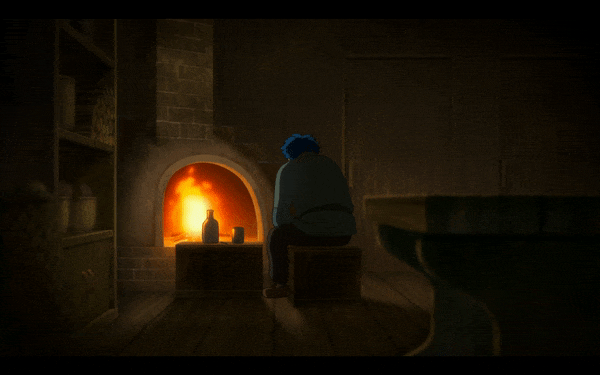
The adoption wasn’t something she would have chosen. Given the option of death or being adopted, Myne would have chosen death. But since it involved her family’s lives, she had no other choice than to give up her freedom in exchange for their safety.
In her case, it wasn’t something she willingly jumped into, or something magical to be adopted by the “Duke of North” but it was a tragic affair. She was ripped from her family, she was forced to act and learn things she didn’t want to. Simply put, this was far from the magic outcome other Isekai stories form.
By the time we jump into Part 3, while the sense of wonder is still there, it’s painted with these undertones of sadness. It also doesn’t help that most of the fairy-tale like “Adopted Child” narrative that often forms in these stories, is more than absent in here.
The whole “I’m a Saintess so I was adopted by the Duke” would be tooth rotting fluff in other isekai novels, where the protagonist has to gain the affection of her adoptive father by being the cutest little thing ever.

…In her case, is one traumatic even after the other.
Rozemyne keeps getting swarmed with work and lessons, having to fight for her life to get ingredients for her medicine, having a half-brother who’s little more than useless, and the entire thing with Hasse…It again reiterates: The adoption, emotionally speaking, was never an upgrade.
While Sylvester considers her valuable and cares for her to some degree - there’s a clear divide between them. Sylvester puts this divide simply because he’s an archduke, and Rozemyne, well, for being Rozemyne. Sylvester never sees Rozemyne as her child, or treats her with doting kindness. To him, she’s a powerful ally, nothing more.
(Despite what people may think, Rozemyne’s closeness to someone is determined by an entirely different system, and Sylvester is counted as more of an ally than family. She put Charlotte on a higher scale than him. She very much does not see him as a Father and would sooner call Kardestadt that)
And even then, Part 3 is not really the focus of the story. The actual story begins to kick in during Part 4, when they go to the Royal Academy and Rozemyne starts to interact with the other Duchies. Again, it’s very common to have Royal Academies in isekai novels. And it’s also very common to jump to them, out of the nowhere. I appreciate how Ascendance of a Bookworm planted the seeds of Royal Academy since as early as Part 2, because I sweAR TO GOD, the NEXT isekai that drops the stupid “magic school” out of the NOWHERE in the middle of my childcare novel is getting PUNTED.
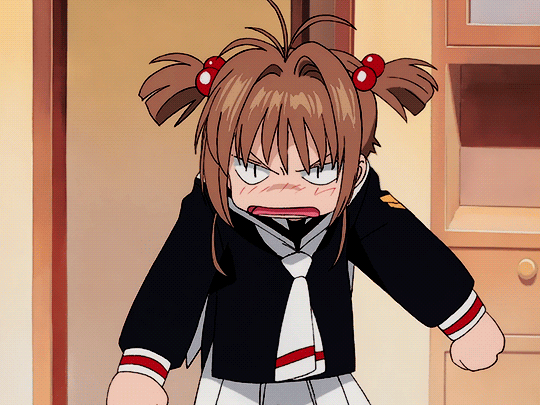
The Royal Academy actually starts to introduce us to the story setting we’ll spend the most time with. Part 1, 2 & 3 form about just half of the entire story. The other half is spent on the Royal Academy and dealing with, well, Royalty and other duchies. And it’s when we first get introduced to how absurdly powerful and abnormal Rozemyne truly is. Because back home she got constantly compared to Ferdinand, very rarely could we see just how different she was to her peers. We sorta could peer at it with Wilfred, but because he was such a bad example of what a Noble should be in Part 3 - it couldn’t even be called a comparison.
And while I was pleasantly surprised to see a subversion of my expectations on all these volumes, I was so focused on these things that I failed to notice what this all meant, until I had the full picture in Part 5.
Part 5 is, well, it’s interesting. It’s interesting because it’s the first time Rozemyne has to walk on her own two feet without Ferdinand there to hold her hand. Yeah, sure, Sylvester is there, Bonifatus is too and Kardestadt, but it quickly becomes apparent that they’re not nearly equipped enough to properly guide Rozemyne. Not only because at that point in time they’re too busy to give her an education, but because she has a better control in many of these issues than they do.
She has more mana, she interacts better with other duchy’s nobles, she gives insight and solutions on many of their issues, is able to directly face the consequences of her actions, and controls their duchy’s main exports and trends. This is not to say that Sylvester isn’t doing a great job as an archduke, since he’s been shielding her all this time and trying his best to contain her - it’s just that without Ferdinand there, Rozemyne simply grew too big for the duchy. Ferdinand was the only one capable of keeping up with her, her ideas, and her projects. Without him, Rozemyne became too much of a central piece in Ehrenfest.
And that’s when it hit me.
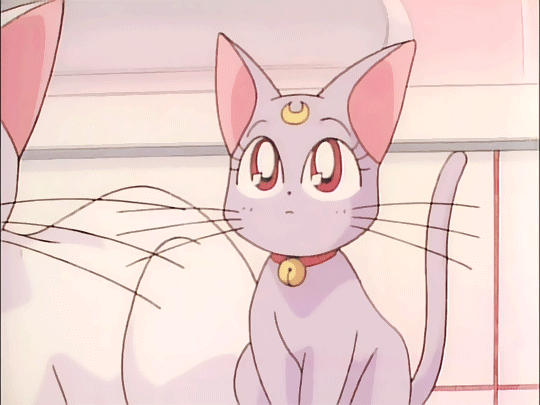
Up until now, we weren’t watching the story of Rozemyne. I couldn’t describe it as anything more than the prologue, or setting the stage for the actual real conflict that is about to unfold in Part 5. And each and every part beforehand was a way to properly give the tools to Rozemyne to become this. The Avatar of Mestionora.
Part 1 develops her merchant and commoner’ side. Her ruthlessness when it comes to profits, her single minded obsessions, and developing the empathy and love above books that comes to define her.
Part 2 develops her as Saint. Her temple work, her learning about gods and goddesses, her prayers, and work in the orphanage. Since this is the narrative that helps her with magic it’s imperative she learns it.
Part 3 develops her as an Ehrenfest Noble. Her position on the social hierarchy, the expectations of her in regards to supporting Wilfred, and the duchy.
Part 4 develops her as a Yugerschmidt Noble. One with a schtappe, one who can wield mana, that of a prodigy.
And all these identities, all these values and lessons, culminate in Part 5. Where, with no one left who can properly prop her up, she has to start standing for herself. She can no longer rely on Ferdinand to tell her what’s right and what’s wrong, she has to make those decisions herself.
And this is why I say Part 5 is amazing. When I was talking about being unable to accurately interpret the politics of Ascendance of a Bookworm, this was the issue. I wasn’t reading the story of politics, but rather - I was reading the setting of the stage for the story about politics.
Before Part 5, it was all about laying the groundwork. How the temple works, how the nobles work, Myne’s logic, etc.
Part 1 Myne couldn’t form her own identity, or properly have an opinion on things, because she didn’t understand how the world works. Likewise, us the audience, couldn’t fully understand the message or the politics being pushed forwards because we lacked the context. We were relegated to, much like Myne, listening to what Ferdinand said was right or wrong.
Now, however, with Rozemyne having her own identity, she no longer has this issue. She has learned, she’s watched. She has formed her three core values that rule her world.
These are:
Family
Meritocracy
Capitalism
These are things she’ll rarely budge in. You cannot threaten her family. He who does not work, shall not eat. And when the opportunity arises, take it and profit as much as you can.
I actually had not realized this for a while. I kept having this nagging feeling that I was missing something, but it finally clicked in Volume 4 Part 5, with.
PREV << MASTERLIST >> NEXT
#ascendance of a bookworm#honzuki no gekokujou#essay#analysis#short essay#character analysis#AoB essay
101 notes
·
View notes
Text
I’d like to talk about how the long term effects of trauma are represented by angels in Good Omens.
Before I begin; I’m aware trauma manifests in many different ways. I have been diagnosed with PTSD by a professional and I am in therapy for that among other things. Please keep in mind nuance as we dive into this as I’m talking about how trauma manifests in a handful of named individuals and not discussing the experience of every single traumatized person ever.
Anyway, here we go.
Looking at Gabriel in Season One and Season Two is such a trip. In season one, though he was fairly naive and kind of a dumbass as people noted, he was far from innocent. He was a complete asshole to everyone he interacted with who wasn’t on his level (on his level meaning people like Michael and Sandalphon). He refuses to show attachment or even attraction to anything that isn’t considered celestial. Even when he says he likes Earth’s clothes, he tries not to show much sadness or disappointment at the fact that they won’t be around much longer because of Armageddon.
But so far in what we’ve seen of Season two, Gabriel still keeps his naive and spacey nature, but to a far greater extent. He’s a total innocent now, fascinated by the world around him and getting distracted at every turn. Again, this is based on sneak peaks and trailers, so we’ll see how things turn out in season 2 once it airs, but this is my analysis for now. The only thing that’s really changed is that he’s lost all his memories.
Memories are an important thing. They make us who we are, for better or for worse. They contain our greatest moments and our lowest points. Pain and laughter carefully woven together to make a living thing. Without memories, a person is as much a blank slate as they were the moment they were born—complete innocence and naivety without really any painful experiences. Think about how young children are before they experience the cruelty of the world. They’re a lot like Gabe, right?
Trauma is scientifically proven to alter our very bodies. Of course, It alters our minds even more. I’ve been traumatized. I’ve seen trauma turn the kindest people into angry individuals who turn on anyone who slights them before they can turn on them. Trauma also gets worse without treatment.
Think about The Fall. Infinitely traumatic for both sides. Nobody trusting each other, friends and family fighting each other, betraying each other, even killing each other. Friends and Family thrown into the Abyss and those who remained in heaven told to forget them, that they are the enemy.
Six thousand years of untreated trauma, only strengthened by the constant premonition of fighting to the death. The war is the only closure either side is going to get. All of these angels and demons have become hardened and jaded by their shared trauma. Beings of Love have become Monsters transformed by their shadow selves.
This is just the ramblings of a traumatized autistic person but I have to applaud @neil-gaiman on this portrayal of long-untreated trauma and what happens when that trauma is suddenly gone.
91 notes
·
View notes
Text
One of the things that baffles me to this day is the fact that both Dean and Cas’s are based off of canonically queer characters, and yet the idea of us jumping to the conclusion that they themselves are queer is regarded by the writers as ridiculous.
For example, Castiel is a direct rip off of the character Constantine in the Hell Blazer comics.  Constantine is canonically either bisexual or pansexual, depending on how you look at it. it is not a fact about him that is up for argument, seeing as how he has had both female and male partners throughout the run of a comics.
Dean is directly based off of Dean Moriarty from Jack Kerouac’s, On the Road- a character who is heavily implied to be bisexual throughout the course of the novel- and this isn’t just some speculation. This is heavily implied throughout the entire book, and this subtext from this book is also paralleled and reference in supernatural. Sam and Dean were based off of the two main characters in that book, Sal and Dean. Only in the novel they were not brothers. In fact, they were imply to be sexually interested in one another, and I think that this dynamic is what caused a lot of the running gags about Sam and dean being confused for being gay in the early seasons of supernatural, so making a nod to this implies that the writers were very much aware of the subtext that the character Dean is bisexual. Adding to this, the character of Dean is based off of the writer who he himself was confirmed to be bisexual after his death, which adds more credence to the argument. 
“In his book Subterranean Kerouac, biographer Ellis Amburn called [Jack Kerouac] a “homophobic homoerotic” – a guilt-ridden Catholic who concealed his bisexuality via gay-bashing on the page. The sexual undertow of On the Road is very strange: while Sal and Dean refer contemptuously to “queers” and “fags” and Dean calls New York “a frosty fagtown“, we’re also made aware that he turns tricks with men to make cash. Even more apparent is Sal’s adoration of Dean. The narration sparks to life whenever Dean is around, and our attention is drawn to his muscular body and joie de vivre; by contrast, Sal’s descriptions of the many women he meets feel pedestrian and uninspired, more schoolboy fantasies than living flesh-and-blood romances. The strength of On the Road, and the source of much of its tragedy, comes mostly from the sparks that fly between Sal and Dean, two men who love and need each other but who are too conflicted and damaged to make it work.” (Hooray for Dead White Males)
They knowingly based Dean off of the bisexual man and then laughed at us when we brought up the possibility of Dean being bi, gaslighting at its finest.
#supernatural#dean winchester#spn#destiel#supernatural meta#I have put real research into this#fandom meta#short essay
78 notes
·
View notes
Text
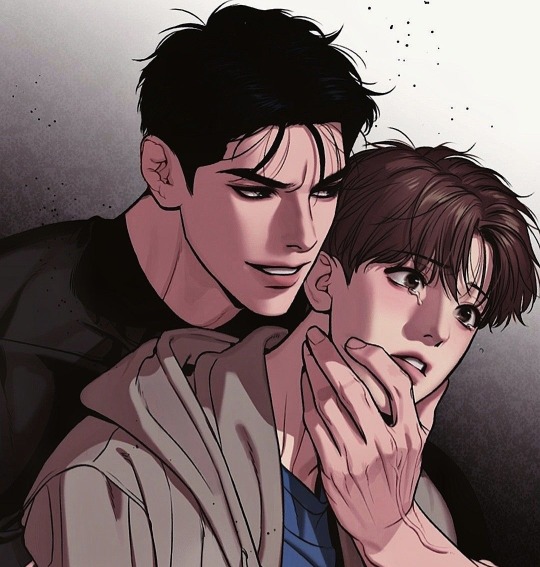
My problem with the BL industry -part 1-
Where do we draw the line?
I want to start this by saying I myself have been a BL fan for many years, I just want to share my thoughts on the issues cultivated by this industry in the eyes of a queer man. I want to focus on the sexualization of “toxic” more so abusive relationships that are portrayed. Because the manwha Jinx is one of the most popular BLs at the moment and it fits as an example of my point, I’ll be speaking a little bit about it.
What was the purpose of the BL genre? Well for women it was a media that served as escapism since most mature media was very much male oriented. Women could not feel connected to the characters portrayed only to please men’s disturbing fantasies. Between the impossible body standards and the clear lack of regard for the woman autonomy it isn’t a surprise that women felt quite disconnected from 18+ media. That’s when an adult genre came to fruition, 18+ media for women by women but no woman was portrayed in these stories in fact the main focus was relationships between 2 men. The disconnect from societal pressures helped woman enjoy 18+ content without feeling guilt or disgust. But how a genre created to disconnect toxic attributes in media became just that but for another demographic? Now the people on the other end of this discomfort are queer people, not only gay men. Romanticizing dangerous power dynamics, dubious consent, sexualizing toxic stereotypes,infantilization ect. The list goes on of all real life issues that the queer community deal with but are nothing but entertainment within this genre.
Not all BLs are bad! Im very aware since again I am quite the fan of some but this is more me criticizing the industry per se. The problem is that toxicity sells, what companies want is to sell and that opens the doors for people to make more toxicity for whatever their reasons. All that moves us to where we are today were we have one the most popular current themes being Stockholm syndrome and how it is hot. I’ve been seeing myself how I have been dropping more series than I have finished, I kept getting hit with more and more of this toxic clichés. It was like I was playing bingo and hoping I didn’t win, I would get so excited for stories that did the bare minimum and yet those were hard to find which has made my current experience quite exhausting. Of course I’m no longer the teen who would let anything pass because “hot characters” and even more hot scenes but now as an adult that just doesn’t cut it anymore. Showing toxic situations in media on its own is not the problem but it is the context in which they are shown, these are not cautionary tales but “love stories” the intent is for you to root for those characters. Not only is the relationships an issue but the way they portray queer people overall, the disrespect for bisexual people, trans people and lesbians in some of these stories is quite appalling since these are suppose to be queer stories. I think this says a lot about the industry and some of the artists involved, before it could maybe be used as an excuse the lack of knowledge but to me that no longer holds in the age of the internet.
Now I’ll like to mention one of the stories I’ve personally been a little tired of seeing, Jinx. I was quite interested in the manwha when it was announced, as I’ve mentioned before I’m all about the visuals and seeing the improvement of the artist was endearing. I’m aware the BL is still ongoing but I have read BJ Alex which can add a little context on how the artist manages their stories. This is not a personal diss on the artist or those who are reading the story, I just think with all these kinds of popular stories we gotta ask ourselves, Where do we draw the line? Jinx is your typical story of the protagonist being someone that went thru trauma and has to spent their whole life trying to pay some insane debt, then comes the romantic interest being a famous rich person with an unchecked personality disorder that takes advantage of the power dynamic and uses the protagonist to his convenience. It is quite an overdone premise and in this story we see it as a black listed physical therapist and a famous athlete, the protagonist Dan appears to act like an Angel while Jaekyung keeps bullying him and using him for other acts. The story so far has been quite literally only this, and you see in the comments people hoping for a redemption arc for Jaekyung, at some point in this story readers have to realize that a good ending would be Dan leaving this situation but unfortunately I don’t have much hope for that. Jinx is not the only story doing this but it is one of the most popular at the moment, we also have stories like Painter Of The Night which is literally the love story between a kidnapper and his victim.
BL is a genre that can be enjoyed by anyone yet it seems like lately it can become queer stories but not for queer people but more so toxic fantasies put onto another group of people that also have to fight for their own respect. It’s perfectly fine to enjoy good ol 18+ media that is morally grey or maybe somewhat toxic but when an industry gains so much money on portraying real issues as unserious fantasies so continuously, I think it’s time we ask ourselves as the readers; When is it too much? When does it get disrespectful to the people it’s portraying? Where do we draw the line?
28 notes
·
View notes
Text
Agar meri shaadi kisi tumblr wale ladke ke sath hogayi Maa kasam Maine sab mutuals ko bulana hai shaadi mai
#ladka dhundhna chalu kardo#desiblr#desi#desi shit posting#desi academia#dear diary#poems#poetries#short essay#spilled poetry
171 notes
·
View notes
Text
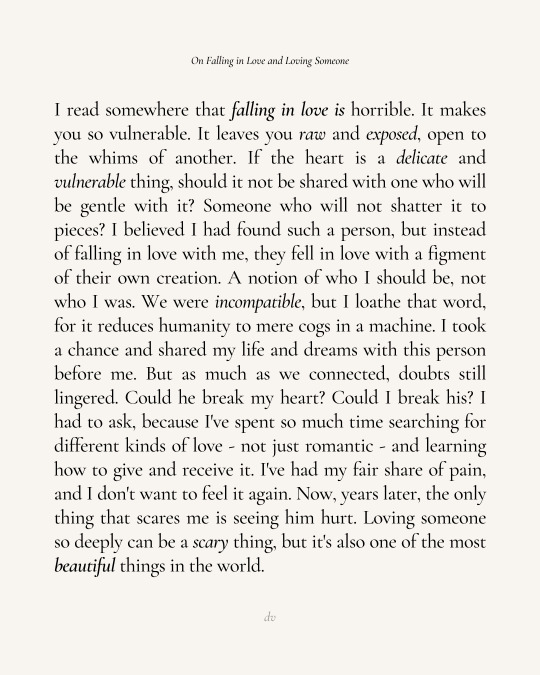
On Falling in Love And Loving Someone
162 notes
·
View notes
Text
[EDIT: This is an older rant and while I still agree with most of what I said, I’ve also changed my opinions slightly, particularly regarding a more positive ending for Victor – while I highly enjoy adaptations which do it, (eg. the Frankenstein musical) I do think his arc should ultimately end in a tragedy to fit the narrative best]
I think the issue with Frankenstein; or, The Modern Prometheus, as a book, is the fact that Victor Frankenstein has too many fatal flaws.
I feel like a lot of people criticise Victor for completely wrong reasons. He’s sick all the time, he faints often, he has a tendency to spiral? Sure I’m not opposed to making some quick jokes about this kind of thing mainly because I relate to a lot of these traits, but I’m starting to realise that a lot of people actually believe them and view Victor as a flawed character because of them.
The problem with Victor as a character is not that he’s flawed, but because he’s too flawed, and let me explain. Victor Frankenstein starts off flawed. He’s hubristic, he’s obsessive, he’s narcissistic, death has followed him literally since before he was born narratively with his parents effectively meeting over a corpse, but he undergoes little to no change or character development in the story. Bear with me.
Like I said, Victor has too many fatal flaws, and it hurts his characterisation. Instead of having one primary flaw such as obsession or hubris, which the rest of his flaws flow from as his state progressively worsens, his fatal flaws are ALL his flaws. As well as this, Victor undergoes very very little change for the better or worse in the course of the narrative. The only moments of grounding in his character are when he’s with Henry, and even then that’ll lead to another problem I’ll get to in a minute.
The main reason for this is because Shelley wants the Prometheus narrative. And that’s a perfectly good motif to have. But she C.S Lewis-es it, until she’s trying so desperately to make the plot fit into a Prometheus story with no deviations that the story itself becomes flawed as a result.
Victor’s characterisation should work one of two ways. First option, he starts off as a much more likeable person, until his hubris and obsession drives him to his own downfall. This is more of a Breaking Bad route, and something I’m not opposed to at all. I think it’d work quite well.
However, personally I feel like Victor should start off as he is, and gradually grow and become more mature as a result of the realisation of the consequences of his actions. The more Jonathan Sims-esc arc. The story can still fully be a tragedy, and Victor can still drive himself to his own death as a result of his actions, but in order for that to work he needs a satisfying character arc. He starts off curious and hubristic, it peaks with his creation of the monster and his subsequent horror, and it’s once the monster has dragged him down to his level that be begins his self-reflection, and REALLY comes to terms with his actions. He needs to have a noticeable realisation and reflection. And not in a whiny way. One where he fully takes responsibility.
The main reasons for this are, for one, Victor needs a NOTICEABLE character arc to work as a character, one I don’t feel he had while reading the book. Secondly, it’s just better story writing. Why keep so strongly to the Prometheus model? Why not make things more interesting? Give our MODERN Prometheus an arc. A moment of realisation. Subvert expectations! That’s just good drama! And it WORKS! Thirdly, I like Victor, I’ll admit. I’m biased to an extent because I see a lot of myself in him which I’m absolutely certain a lot of other people do as well. And I feel like, even if Frankenstein is a tragedy through and through, it should be an explicit narrative focus that his downfall was a product of his own obsessive actions, and not the obsession itself. Let me explain.
It worries me that a lot of people come away from Frankenstein feeling like Victor is fundamentally flawed as a person because he’s chronically ill, or because he has a tendency to spiral, or because he has a tendency to become obsessive about things. These flaws aren’t controllable. What he does about them are. And that’s the main issue I have with his characterisation in the novel. The line can be blurred to begin with, for certain, but he needs a moment of reflection to realise that this tragedy has been brought about by his actions and not because of the cards he’s been dealt. And whether you go the Breaking Bad route or the Reformation route, both will leave the audience with that impression.
I think Victor Frankenstein deserves an arc. I don’t believe that the only people who should come away from Frankenstein who are attached to the characters are people who can sympathise with the protagonist and fill the blanks themselves. I think the readers of Frankenstein should have had the chance to KNOW Victor, more than who he is when he’s compulsive or sick or self-absorbed. And like I said, the main moments where we get things like this are through his interactions with Clerval, but even those scenes are hindered by the fact that it’s completely reliant on Victor’s memory. Which leads me to my next point.
I don’t think Frankenstein as a novel benefits from an unreliable narrator. I think we need the other characters’ perspectives. Victor can still fully be the centric character, but we need details about him from characters who are not Robert Walton and who are not Victor himself. We should have writings from Henry Clerval himself, and Elizabeth needs to be dramatically changed as a character altogether. I think Frankenstein should be a little more like Dracula in that regard, and I think it should be much longer than it is.
We should have the Ingolstadt chapters in detail. We should have Henry and Victor’s travels in detail. In order for the story of Frankenstein to reach its full potential I think we need more in-depth interactions and scenes from multiple perspectives. I’m talking written comments from Victor’s professors about him. I’m talking journal entries from Clerval. If not, hearing about how much, for example, Clerval cared about Victor FROM Victor just feels unnatural, and, at worst, some readers might just feel like he’s a narcissist.
In summary, I’m not happy with Victor’s characterisation in Frankenstein, and I find it flawed. I feel as though it blurs the line too heavily between Victor’s struggles and his negative choices, and doesn’t allow any characters apart from himself to talk about him which leaves him coming off as narcissistic, irritating and unlikeable to any reader who doesn’t have any understanding of what it’s like to be in his position and are able to fill the blanks themselves. Victor’s characterisation shouldn’t be reliant on reader sympathies and furthermore apart from that is just blatantly flawed in his number of “main flaws” and lack of any noticeable arc. I love Frankenstein, and I love Victor. But in short, Mary Shelley did him dirty. Thank you and goodnight.
#classic literature#goth lit#gothic lit#gothic literature#frankenstein weekly#Frankenstein#victor frankenstein#henry clerval#clervalstein#classic lit#short essay#toast frankenstein
103 notes
·
View notes
Text


After watching Guardians of the Galaxy vol. 3, I've had a long and hard think about how Peter and Rocket's relationship was portrayed in the film and I think there is clear homoerotic subtext between them. For clarification, homoerotic subtext is when a close friendship between the same sex is portrayed similarly to a romantic one. Here is the instances it was implied throughout the gotg trilogy.
*Spoilers for Guardians of The Galaxy will follow*
When Rocket's life hung on the balance, Peter went to great lengths to save him. Throughout the film, he refers to Rocket as his "best friend". He blames himself for Rocket's injuries as he was drunk at the time and couldn't stop him from getting hurt. When Rocket laid flatlining on the bed and was near death, Peter didn't give up on him. He had hope that he would get out of this alive. He wasn't going to lose another friend. Peter had a heartbreaking, visceral reaction to watching Rocket die before him. He needs Rocket more than anything. He is the one that holds him together even in his darkest moments.
When Rocket comes back from the afterlife, alive and well, Peter hugs him tightly along with Groot, showing how much he cares about him.
"I'm not letting him go"
Peter and Rocket share the same interests in music. They both share ownership of the zune. Rocket can be heard singing along to the music like Radiohead's Creep in the vol.3's prologue. He has formed a special connection to music the same way Quill has had. The connection is utilised when Quill nearly sacrifices his life to get the zune back for Rocket. "I got this back for you" is a very powerful message. Music is the thing that brings them together and makes their bond stronger. His love for Rocket made him get the zune back. It was all in the name of love.
When Peter is away, Rocket would listen to his music as a way of remembering him and to feel that his presence is always with him. Rocket may love to make fun of Quill, but he is everything to him.
Peter and Rocket would argue about who was captain and bicker and throw insults at one another constantly. It was what made up most of the tension between them. They are like a couple arguing, with unresolved sexual tension they choose not to deal with.
Peter has lost so much in his life that he has become a shell of a man. Rocket is scared of losing people and desires to push people away. He blames himself for losing his friends all those years ago and can't bear to lose another. He is scared of disappointing them. They both understand these flaws and help each other work through it.
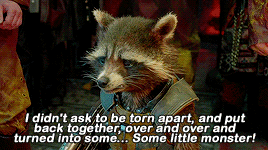
When the Guardians were in the Kyln Prison in Vol 1, Rocket wasn't afraid to defend Quill from those who desired to kill him. He was his bounty and if they wanted to get through to him, they had to go through him and Groot.
In Avengers Endgame, Rocket wore Star Lord's scarf as a mark of remembrance after his captain was dusted.
Rocket comes to pull Peter out of his drunken state. In that dark period of his life, when he was mourning Gamora in a unhealthy way, Rocket was the only one that was there for him. He took him out of that dark place and was there for him every step of the way.
Peter appoints Rocket captain and leader of the Guardians of the Galaxy at the end of Vol. 3 because he sees so much of himself in him. He has so much respect and honour for the raccoon after everything that he went through, that he needs someone who can protect those who can't fight for themselves. Those who were once in Rocket's position.
In the mid-credits scene, when Rocket and the new Guardians talk about their music tastes, Rocket introduces the team to the song "Come and Get Your Love" by Redbone, a song that holds a special place in his heart because it was Peter's favourite song. The way he talks about the song prior to playing it is quite melancholic because it reminds him of Peter. Now that he's gone, he misses him with all his heart.
My personal headcanon is that Rocket had feelings for Peter, but was too angry and stuck in his ways to admit it. When he was drunk, It hurt Rocket to see Peter in such a dark and depressing state. When Rocket gets hurt, it spurs Peter into action and it makes him realise how much he cares about the raccoon.
#roquill#guardians of the galaxy#peter quill#rocket raccoon#guardians of the galaxy vol.3#homoerotic subtext#peter quill x rocket raccoon#short essay
382 notes
·
View notes
Note
Hello! I'm new here! Just the other day I was going through the AsuShin tag, found your fics, and loved them! I also spent some time reading your thoughts and theories. Which brings me to ask, how do you perceive the changes and (lack of) relationship between Asuka and Shinji from Evangelion, EoE and Rebuild?
Specifically regarding Rebuild, I found it disheartening how they set Shinji and Asuka aside so easily. I'm not talking strictly nor only about shipping. I grew up watching the 90s Evangelion. And a big part of the story and its exploration of psychological themes and characters's psychology and motivation was Shinji's relationship with Asuka. Most of all in EoE, which, to me, is the ending I find most fitting.
It was dreadful to watch the redone beach sequence where Shinji thanks Asuka for admitting she used to like him, then him saying he used to like her back. Only for them to have that "everything is suddenly happy now" ending. This sequence seems to discredit most of the themes and sacrifices made in the original story, and does not satisfactorily brings their story to a close, but instead seem to try to brush it aside or bypass it somehow. Again, I do ship AsuShin but my grievance has much more to do with the way Rebuild handled them, I don't think in a story like Evangelion we could ever have had hopes of them living happily ever after or even be together necessarily
Hello!
Thanks for being here. I wanted to answer this as thoughtfully as I could! Asuka and Shinji are definitely a complicated pair. Regardless of shipping, they require care and attention to understand.
In NGE/EoE, the focus of the series is on their interactions, especially with the End of Evangelion. Episode 9 onward is focused primarily on the interactions between Asuka and Shinji, their highs and lows, the back and forth and their eventual downfalls. I always find it funny how people are highly critical of the interactions between the kids. From my memory of high school/being a teen (2004 to 2009 mostly), it was very much like this. A lot of back-and-forth denial of feelings and messiness trying to avoid pain, not wanting to speak your feelings due to embarrassment, and a lack of knowledge on consent or anything romantic or sexual. It all was a very realistic portrayal of my teen years, primarily because of the depression and mental illness (spoken as an undiagnosed mentally ill teen).
The realism with Asuka and Shinji and the non-linear progression/recovery felt extremely important to me. It was evident that they had a massive attraction to one another. Still, they fell into the trap I had in my youth of being unsure how to communicate my feelings without being rejected or experiencing pain. Even without romantic or sexual feelings, Shinji and Asuka live together, attend school, and work together. They are often abandoned by Misato at home alone, left to their own devices. They are two kids competing to see who can grow up faster. They have a compelling dynamic because they are so messy! In NGE, we see their ups and downs, learning about each other, fighting together and building trust, kindness, rude words, misunderstanding, poor communication, etc.
I love End of Evangelion. I don't need to see what happens after Asuka returns; I know now Yui was telling the truth that anyone can return when they are ready. Of course, it would be Asuka next after Shinji; their destinies are intertwined. She has every right to show him compassion AND to still be angry after all he did to her. The point of the ending scene is that there is love and affection in the world, but it's not forced; it's not a given; it's realistic. No one owes you anything, not love, not compassion, but when we choose to be kind, how amazing is that? Asuka and Shinji can continue to learn, grow and survive together. There is hope; they can be happy, but they must rebuild, work together, and try to find that happiness.
Rebuild of Evangelion is so Shinji-centric at times it feels like it doesn't care about anyone else's motivations or backstory. Rebuild disappointed me so much with its focus on cinematic fights over substance. Rebuild also falls into the trap of forcing a perfect happy ending, which is unrealistic and annoying. Real change is messy and takes effort, years and years of action, and instead, we find perfection in imperfection. It's okay and expected if everything doesn't go exactly as planned. Rebuild needs more focus. It's evident that there was no overarching plan for the 4 films and that they underwent rewrites and delays for years. Of course, ideas would change. It took years to finish the series. It went from "Evangelion for new fans, a retelling that doesn't require you to watch NGE" to "The action sequences are good; let's make money off of sexualized children."
A lot of the AsuShin content is added on later in canon bonus material later added to 3.0 + 1.0 to clear up misconceptions about the relationships. It's subtle, and it feels tacked on. Shinji spends so little on-screen time with any of the characters that we don't get the same interactions, world-building, or character development and the flatness of the characters bothers me so much. What are their motivations? "Well, he cooked for her, so she likes him." Okay… that seems flimsy since she spends all her time alone, and he spends all his time alone…
Shikinami might as well be 14, screaming that she is an adult now. For all the ways she has changed between 2.0 and 3.0, stewing in her anger doesn't seem very adult. The children telling us they are adults really doesn't convince me. The time skip accomplished nothing as no one reflected on 14 years passing in a realistic way. Shinji didn't grieve lost time or grapple with being an adult in a child's body. The deus ex machina at the end might have been "And then Shinji woke up, and Wonderland was gone" or "Asuka clicked her red heels and said there's no place like home."
Pixar films are popular because "Life doesn't always go according to plan, but you can still find happiness in the mess of life." The idea is that things are imperfect, and we make the most of what we have. Sometimes, what we want is different from what we need. Rebuild fails to capture this and instead falls into a trap I see in YA novels where the epilogue is much too neat. We see ourselves in the characters, and we identify with the struggle, but then the ending is too tidy. The protagonist gets a hetero-normative end with children and a picket fence and marries one of the love interests introduced early on. The protagonist becomes unrelatable to us because they fall into complacency where they have a 9 to 5 job and do nothing to better anything after the "fall of the tyrant." To quote The Who with their song Won't Get Fooled Again: "Here comes the new boss, same as the old boss." How can we, who are struggling daily for our survival and happiness, find the changing of one problem to be satisfactory in solving all issues? No more Evas, cool, but now he is under capitalism which we all know SUCKS. Sounds perfect, Shinji. Thanks for making your lives miserable in a new way. Trapped in wage labour sounds excellent.
That's why I'm not a fan of "happy" endings. I only need some of the problems solved. I want to see work to build a new world. In the Rebuild ending, I dream of Asuka and Shinji working side by side to rebuild cities, prevent new child soldiers and be active in a community that fears them. We don't need a dream of paradise. We need hope that WE can make a difference, too.
#shinji ikari#neon genesis evangelion#rebuild of evangelion#evangelion#asuka langley shikinami#asuka langley#asuka langley soryu#theory and analysis#short essay#anon ask
23 notes
·
View notes
Text
Part 2: The Alter Ego Of A Heroine And It’s Relationship To The Protagonist

You can’t have a good Love Square, if you don’t have likable protagonists.
It’s very easy that when emotions play a role, for hearts to be swayed one way or the other. So you have to have very concrete and powerful characters that you will not hate – even if they mess up.
If you don’t have them, much like any Love Triangle, you will begin to hate one of the options. Then, trying to insinuate, whoever is left of the couple as ending with this less-liked-character will just end up pissing everyone off. This delicate balance is even more imperative in the Love Square.
Therefore, we need not only a lovable protagonist, but one we really want to root for – and Marinette has been suffering in that department for quite a while now.
So, we have to talk about her. Unfortunately, despite her being central for the show to work, she’s probably the second most character that suffer from the terrible writing of this show (and we all know who’s the one who suffered the most).
So, to understand what went wrong with her character, we first need to clear the bases and talk about Alter Egos.
An alter ego is the “alternative version” of someone. The Superman to Clark Kent, the Spider-Man to Peter Parker, the Batman to Bruce Wayne. They represent the hero version, the other self, the better version if you will, of protagonist were supposed to root for.
In magical girls, these better versions are key to understanding our Main Character. While, yes, there’s many magical girl like Sugar Sugar Rune or Sakura Card Captor that don’t place emphasis on the Alter Ego, MLB definitely does.
You see, the Alter Ego is better. Brighter, happier, have a sense of justice and are able to confront the world. While our Main Character doesn’t have these characteristics, or at least not as external. The alter ego represents everything they wish to be, while the real them hides underneath.
And it’s this push and pull between two of them that becomes a core, of sorts, for the story. For two main reasons. One, it explains the character. And two, it represents the theme.
A very good example of this – is Madoka. What makes a magical girl, a magical girl, in this universe?
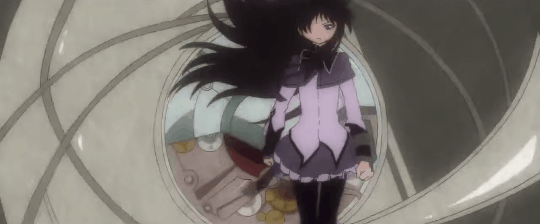
You make a wish. Something you want more than anything. And that wish is what fuels your hearts to fight against the ghosts of the peers that came before. And if you lose sight of what that wish originally was – your soul gem cracks.
When Ayaka realizes that saving everyone is useless, her soul gem cracks, because proving that Mami was right and Homura was wrong was what drove her to be a magical girl. She became a Magical Girl to prove Homura wrong, that she could be happy being selfless.
When Homura’s goal to save Madoka is over, and she despairs over how she didn’t save her (only doomed her to an eternity of fighting), her soul gem cracks. She becomes a demon. She became a Magical Girl to save Madoka, so it makes sense she would become something worse when it turns out she didn’t.
Magical girls, are just that. A wish. Usually fighting the “failed versions” of themselves. Rue, who couldn’t have Mythos heart. Utau who hid half of her personality to please others. Sara, who couldn’t find love.
Magical Girls are a wish. While they become magical girls to save the planet, there’s something behind it that they guard deeply and wish to protect even more. And conflicts with their “true” self.
Other examples, are…
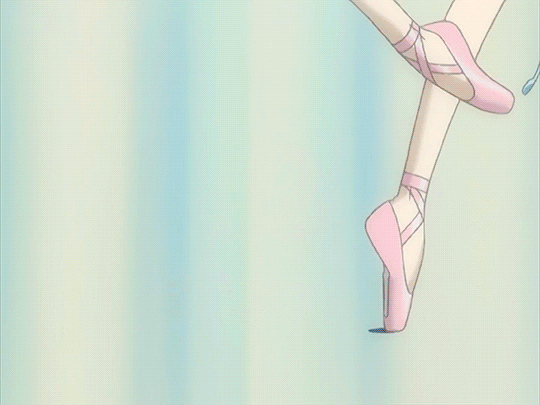
Princess Tutu is the representation of Ahiru’s love for Mytho. Ahiru wanted to save him, so it only stands to reason that her Alter ego is one that collects his heart shards, desperate to make him whole again. That’s what she fights for - For Mytho's, and eventually her own, happiness.

Sailor Moon is the representation of Usagi’s past as Princess Serenity. It’s her bonds that transcend space, it’s her duty to protect the earth like she couldn’t protect the Moon Kingdom. While this doesn’t happen in the first seasons, by the end of the series, it’s her deep connections and love for the rest of the sailor scouts that drives her to bear the weight of saving the world. These connections and bonds to her past, are what make her step forward and become a ruler again, and the reason she keeps fighting for Earth. In the future, we even see that Usagi, becomes Princess Serenity – her past. By becoming the queen of Neo Tokyo.
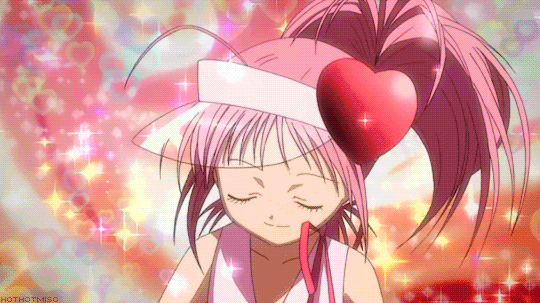
Amulet Heart is the representation of Amu’s “I want to be” self. Her desire to be sporty and happy, easy to mix with people. She has many others and through them all she aims to find herself. Who she really is, and where she fits in a school that idolizes a fake version of herself. Because in truth, the “real” amu doesn’t have a personality. She constantly feels like she copies others, but never truly finds who “she” is. But her Shugo Charas help her do exactly that. Break out of her shell, become someone very uniquely her. To the point that she eventually (in the manga) develops entirely new shugo charas. Because her ”I want to be self” has changed, and by defector, her. She became a Magical Girl to finds herself.

Pink Pearl Voice is representation of Lucia’s duty as a princess. She has seen her people be in distress and knows the weight her actions have on her nation. Her purpose is to fight those who want to hurt her kingdom. To return peace to the seven seas. While her true self, Lucia, just wants to be happy, free. Fall in love with a human – even though its forbidden by her kin. So, who should she be? Fall in love, or follow her duty? Again, in the manga, she becomes Agua Regina, the ruler of the seven seas, pointing to the fact that falling in love and ruling, aren’t as opposed to each other as she once believed.
So, with all this as context, what exactly is ladybug’s purpose? What does she represent? Why did Marinette decide to become Ladybug?
Again, it’s not “Just to save the world” or “because they’re forced to”. And the ones whose premise is that, are the most dark and disturbing magical girls there are (princess tutu, madoka, and utena)
So, Marinette has something, right? Something she fights for? To protect her friends? Her country? Her school? Her family? Is it pressure from her parents? Or is it herself? Why pressure herself, and to this extend?
What exactly would have been her wish when she became Ladybug? Why would she have accepted a deal where herself is in jeorpardy, and continue to accept it as more and more burdens pile up on her?
What’s stopping (in season 1-3) from ditching everything and asking Master Fu to find a new ladybug? Realistically.
Aaaaand, you probably have an answer.
But here’s the thing.
It's either an answer that came post-season 4, which again it’s too damn late. Or, outright not an actual reason given by the show.
Because the reason a lot of Aus, fanfics, and fancomics work are because they answer this question. Reality is, canon really doesn’t have much of an answer – except a very vague “sense of justice” Marinette has. There’s no clear answer. According to previous actions, we can speculate why. But we don’t have a real reason.
Is it because she was bullied? Is it because she got made fun of? Or is it simply her good nature? When has she expressed this outright or even sat down to talk about it with anyone?
We don’t know what Ladybug represents.
We don’t know why she keeps fighting evil. Why she takes on this mantle that’s slowly eating her away. And without knowing this, we really don’t know Marinnette herself.
And this is a Marinette-exclusive problem, may I add.
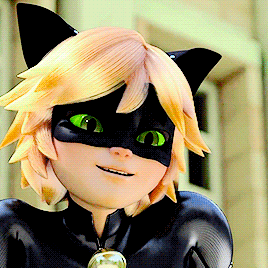
In the case of Chat Noir, it’s easy to find his reason to fight, and very early on - Season 1 early on.
He wants to be free, wants to be able to escape his home that feels like a prison, but still craves a place that will welcome him as he is: a mischievous trickster who messes up sometimes. Represented by a cat with a bell, meaning a cat with a home. A mischievous person who craves a place to belong
And that place is Ladybug. She offers that, while Chat Noir lends him the means to show that “true self” he can’t allow to others. He would never give up his miraculous because it would mean losing all that.
But Marinette doesn’t have that.
The closes thing we get to a “ideal self” is the fact that as Ladybug she gets to be the leader and the confident girl she always wanted to be, because she’s clumsy…But I have to say, that doesn’t really make sense. Its implied, in the first season, when they run for president, that she’s a naturally born leader. And if it weren’t for Adrien making her nervous, she’d be much more capable that she is right now.
Which makes the Marinette we have as of now, an amalgamation of many different MC tropes all stitched together with the world’s flimsiest needle. It’s a poke away from entirely crumbling.
We have:
I have a crush on my idol classmate
I am clumsy and ditzy
You can’t bully people! That’s wrong and you’re a meanie!
But also I’m kind hearted and will offer a helping to hand to those ostracized by society
Except if they’re the villain or the villain’s minions, they’re bad
I am a natural born leader and inspire others
But also I have no self steem and constantly doubt myself
I am soo shyyy
But also I will be weird abt my crush
And while these definitely can work together and form something coherent. They didn’t. They tried, and a very big emphasis on TRIED here, to give some of these aspects a backstory – like the stupid Kim Backstory about obsessive behaviour – but again, too little too late.
And even if, big if, it never really gets explored beyond this surface level. Did she talk about it with Chat Noir? Did she talk about it with Adrien? Did she ever stop to think or reflect on it?
It seems to me more like an effort from the writers to shrug off Marinette’s creepy behaviour by trying to justify it via trauma, rather than confront it and have a serious conversation about what it might entail.
But probably the most frustrating part - is that it could absolutely still have worked. If anyone gave a crap about admitting they f-ed up and working to fix it.
*Sighs*
I liked the Marinette from the PV. She reminded me a lot of Ahiru. A kind and cheery girl, with a golden heart, who secretly crushes on her idol prince. Probably someone who would be kind to a fault, trying to brefriending even the ultimate boss.
But Marinette right now wouldn’t. Or at least I think she wouldn’t. I mean, she hates Chloe and Lila, and would never offer to help them. Never has opened up and has an antagonistic rship with them.
But she did help Ivan that first time. And we see her forgive people who aren’t explicitly villains.
But she WAS really nasty towards Kagami when they didn’t even know all that much about her.
And this is not a sailor moon/fish eye situation where Adrien and Marinette are dating, or a lost memory thing that happened in the first part of sailor moon R. She’s just – mean bcs this girl has a crush on the boy she likes.
“It makes her a complex character-!”
It makes her confusing. You can’t know how she’ll act, so you can’t understand her and her actions. It alienates her.
Not really Magical Girl, but a good example of an extremely weird girl, who we understand is Rozemyne from Ascendance of a Bookworm. She has wild and unpredictable reactions – but we understand her internal logic. We know she’ll offer help when she can, but draws a hard line between friends and acquaintances. She wouldn’t jeopardized her loved ones for people she barely knows.
Something like that is missing from Marinette.
Unfortunately, at this point we only have one defining characteristic of her.
The one thing you’re sure won’t change, the one thing you can trust her to be no matter the circumstances. Her defining characteristic:
Adrien
Her feelings for Adrien are the only true constant.
We can’t trust her to be kind, bcs maybe the girl is crushing on Adrien and we’ve seen how she treat those girls. We can’t trust her to put art before anything, bcs we rarely see her design. We can’t trust her to be smart, clumsy, a good leader, a crybaby or happy.
The only thing we can trust about her, is Adrien
Which could work. Many other magical girls base their character around their love interest. It’s not an automatic recipe for disaster. An MC with heavy focus on romance can work.
Ichigo Monomiya, for example, is someone whose crush is a big part of her character AND motivation. She wants to protect Earth (as in nature) because it means so much to Aoyama and her main conflict comes from how she doesn’t want him finding out about her being a Mew. Her story revolves around how much she wants to spend time with him - but is unable to.
And Ahiru’s entire wish is for Mytho to be happy at the cost of her own. For a while the only motivation she seemed to have was Mytho and we knew little abt her aside from that.
Marinette basing her entire identity around Adrien may not be a bad thing (writing wise) if the writers acknowledged that’s what they’re doing. If they allowed conflict to build upon it.
Maybe a explore who she is without Adrien, and how he affects the perception Marinette has on herself. Who does she become without him and more importantly,
Why can’t she get together with him?
Real, why can’t Marinette get Adrien?
Well, the show has told us many times why. Awful consequences, the end of the world, etc etc.
But what I’m asking is why Marinette can’t get closer to Adrien? Even as a friend?
What’s stopping her from confessing? Or giving the first step? Being ladybug? Her own nervousness?
There’s usually a reason why these things can’t progress. Nervousness, after four seasons, shouldn’t have been one.
I mean, it worked on the first few episodes and even seasons. But at some point, her nervousness just became unrealistic, and it falls to the point of annoyance and even blatant fetishization by Thomas’ part – for a girl obsessed over a boy.
Again, Ichigo took steps to get closer to Aoyama since day one. The only reason why she can’t confess, isn’t because she gets nervous or can’t seem to talk to him. It’s because she’s scared that when Aoyama finds out she’s half-cat, he’ll be grossed out and won’t want to date her.
And if we talk about shyness and clumsiness, Ahiru comes to mind. Someone who also messes up when her crush is involved.
However, Ahiru gets competent the more time she spends with Mytho. By the end of it, even if she’s scared or nervous, she jumps headfirst into danger to protect him. She’s able to have conversations with him, and even gets close to his friends. She breaks out of her crush so much, that she’s willing to accept that Mytho is not meant for her.
So, no. Shyness and clumsiness when writing a character, isn’t a good answer.
What about her being Ladybug and the responsibility it comes with it, impeding her from finding love?
Well THAT plot point doesn’t get explored. At least, not with Adrien.
It only ever gets explored until season 4 and with MAY I REMIND YOU Luka. That she’ll always be distant or unable to connect with someone because of how much she has to keep from him. And it’s also kinda weird, when you juxtapose Luka and Aoyama.
Aoyama is the main love interest in the anime Tokyo Mew Mew. He was often sad and disappointed that Ichigo couldn’t put priority on him.
In one particular episode, he asked her out to go to the movies and was waiting for Ichigo, but a fight broke out and she was unable to go meet him. Mid-fight she does try to contact him but a jealous alien breaks her phone, making her unable to tell him she’s going to be late.
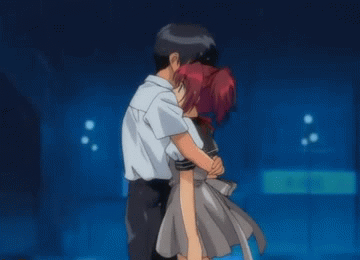
The iconic scene where she comes late to her date, and Aoyama is still waiting in the rain, will always be ingrained in my mind. The music, the writing, it all builds up to this point. You can see how much they long to be together, but there’s this impossible barrier for them. Caused entirely by circumstance. If Ichigo were normal, if she weren’t a hero, if she were just like other girls, she would be with the man she loves.
But she can’t. So she has to hide. Hide parts of herself, and her life. Even as she confesses that she loves him, she’s hiding her tail and ears. Worried that he’ll hate her but still trying to reach out.
And Aoyama forgives her. He says “I love you too”
It truly showed how they can’t be 100% together. That there’s a gap they can never truly fill.
But Aoyama /tries/. He doesn’t break up with her, doesn’t get angry, he hears how truly sorry she is and sees how anxious she’s getting - and accepts it. He forgives her. Because there’s things, they still don’t know about each other, and neither are ready to share.
That’s why Luka’s reaction Is weird. Wanting the whole truth from your gf is strange. And yes, Marinette is an asshole for still crushing on Adrien - but Luka knew! And he still accepted her. But he draws the line at Marinette having a secret he won’t tell her 2-month boyfriend and not even her closest friends KNOW?? And, it gets even worse, when you know that the secret of her “being ladybug” is something he’s known for a long a time. (And so has Aoyama by the way)
So a fundamental part of Marinette’s struggles were shoved into a padded 30 min episode. Where the blame is placed entirely on her.
I know they’re trying to fix it in season 5, an attempt to make her more proactive and give her a backstory and the like.
But this is your protagonist.
You shouldn’t be trying to fix her five goddamned seasons in. This should have been something addressed in – at LATEST – the second season. The villains also have this problem, but this is much more saveable in their case. We’re not supposed to care much for them to begin with.
And as I said, both the protagonist Alter Ego, and the Theme of a story are extremely linked together. If anything, they should have been able to fall back on their theme. What were they trying to say?
If, say for the sake of argument, Ichigo is an unlikable protagonist, maybe by just leaning into the Nature and Ecology theme of the show, you can build a new personality.
This is what star vs did – they gave Star character development as they developed the theme of intergenerational conflict and colonization.
So, SURELY, if Marinnette is a bad protagonist with no real reason for her Alter ego –
The writers can fall back on their theme to write a cohesive protagonist for the overall story of theme they’re trying to talk about
Right?
Spoiler. No.
PREV << MASTERLIST >> NEXT
131 notes
·
View notes
Text
Sci-fi writers not being racist and unimaginative challenge (IMPOSSIBLE)
I had a dream that I tried to write this recently and accidentally replaced it with footage of me playing Deep Rock Galactic when I tried to post it, so I’ll try my best to not do that.
I know saying that a lot of fantasy and science fiction worldbuilding is barebones and bland is a pretty tepid take. In many fictional settings, the idea of nationality, ideology, and race are conflated. One and the same, effectively. Mass Effect has the Turian Hierarchy and the Salarian Union, galaxy-spanning governments made up of almost singularly the species turians and salarians respectively, who all believe in roughly the same things, have the same broad personality, and have seemingly been stagnant for thousands of years. Deviation from the turian mentality is treated as a unique trait worthy of ascending a random NPC to a supporting character. To all other races, the idea that humans can believe in different ideologies is fascinating. I think it’s an uncontroversial take to say that this is pretty bland writing, and at least a bit racist. Outside of the special and unique (and overwhelmingly European) humans, all other cultures are monolithic and simplified.
I should stop myself here because I genuinely have at least half a dozen essays’ worth of Mass Effect topics I would want to go on a rant about. I should move on.
Orson Scott Card’s writing beyond the original Ender’s Game is also emblematic of this approach. In his sci-fi universe, all of the countless worlds that have been colonized are entirely monocultural. Specifically, they are takes on cultures from the point of view of a 30-something center-right mormon in America in the 1980’s. Highlights include a world colonized by the Japanese which bears the name Divine Wind, which translates to ‘Kamikaze’, which might be in slightly poor taste. There is also a world with a predominately Chinese population that is notable for a) being largely covered in rice fields, and b) not knowing what neurodivergency is. It gives overwhelming ‘I read a Wikipedia article and skimmed a really racist history book and am now an expert on all other cultures” vibes. He also wrote Xenocide and Children of the Mind, so maybe we should stop taking him seriously.
So often, worldbuilding in fiction refuses to reckon with the idea that the nations they depict can be anything beyond overwhelmingly monocultural stereotypes of real-world people. After all, it’s much simpler if all of the aliens are just caricatures of other people that really exist, right? No work needed. Oh no, what's this picture of a T'au doing here?
This took me a while to write because I’ve got a lot of takes on the topic of writing and worldbuilding, and it was hard to figure out what to include and what to save for a more focused post later. On that topic, I do have another one planned focusing on my personal, insignificant takes on the ingredients to make a coherent backdrop for a story, and some hot takes and blanket statements to make about worldbuilding as a whole. It’ll hopefully be something more positive and constructive than this.
EDIT MADE MINUTES AFTER I POSTED THIS: I forgot to include the funniest example of all time, the world of Warhammer Fantasy. There are some incredible examples of this kind of worldbuilding. Kislev, the Lizardmen, Cathay, Nippon, Araby, the Tomb Kings, Bretonnia, all comically transparent carbon copies of the most obvious, stereotypical parts of real-world cultures that managed to become a relatively successful media franchise that helped to launch Games Workshop into the company it is now.
#mass effect#mass effect is actually kinda bad#worldbuilding#orson scott card#ender's game#warhammer#sci fi#short essay#okay but seriously mass effect is baffling#did we all forget the line about autism from the dlc#orson scott card is a hack
24 notes
·
View notes